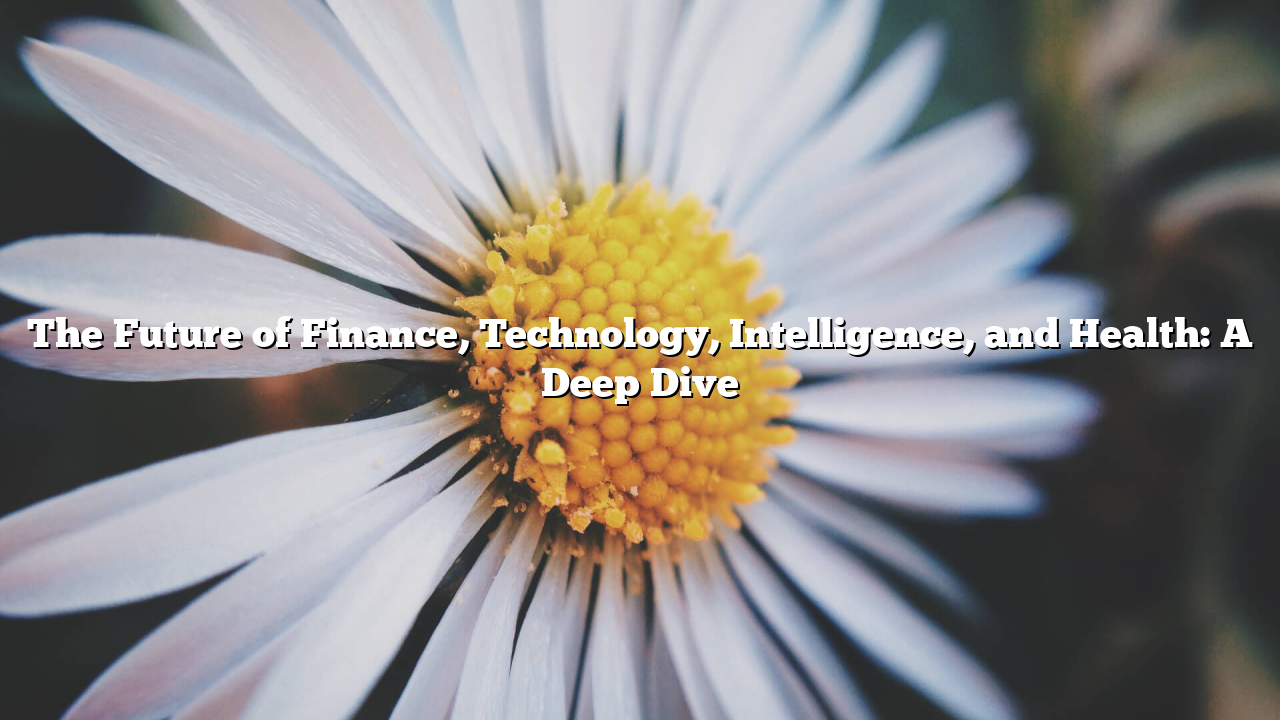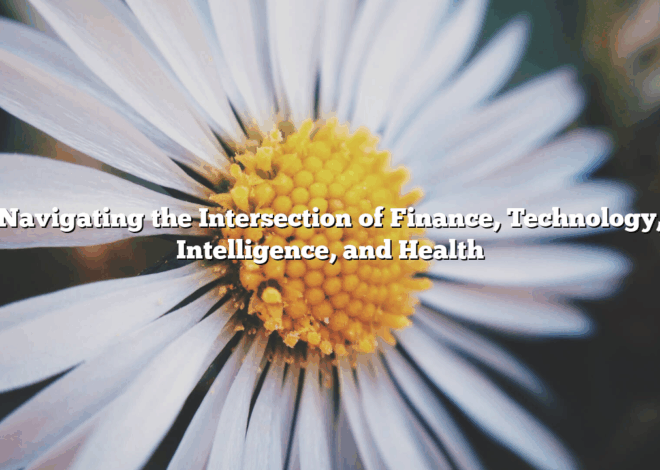
The Future of Finance, Technology, Intelligence, and Health: A Deep Dive
—
In today’s rapidly evolving world, finance, technological innovations, intelligence, and healthcare are intertwined in ways that are transforming every aspect of our lives. As these fields continue to evolve, they are reshaping economies, societies, and individuals. This article explores the impact of these developments, their intersections, and how they are shaping our future.
1. The Evolving World of Finance
The world of finance has undergone a dramatic transformation over the past few decades, largely due to technological advancements. From the rise of cryptocurrencies and blockchain to the increased reliance on artificial intelligence in trading algorithms, finance is becoming faster, more efficient, and less reliant on traditional banking systems. The development of digital currencies such as Bitcoin, Ethereum, and others has changed how people think about money, investing, and transactions.
Cryptocurrencies are creating new ways for individuals and organizations to exchange value without relying on traditional financial institutions. slot777 , which powers these cryptocurrencies, offers transparency and security, making transactions more trustworthy and accessible. Moreover, decentralized finance (DeFi) is emerging as a new model for managing and exchanging assets, allowing people to bypass traditional banks entirely.
2. The Role of Technology in Healthcare
In the field of healthcare, technology has opened up new possibilities for improving patient care and overall health outcomes. Artificial intelligence, machine learning, and big data analytics are enabling more accurate diagnostics, faster treatment decisions, and personalized healthcare solutions. One notable advancement is AI’s ability to analyze medical images and detect anomalies that may go unnoticed by human doctors.
Wearable devices like fitness trackers, smartwatches, and health monitoring systems are enabling individuals to take control of their health by tracking vital signs, physical activity, and sleep patterns. These devices can provide real-time data to both users and healthcare professionals, allowing for earlier intervention and more personalized treatment plans. Additionally, telemedicine has become a crucial part of the healthcare ecosystem, enabling patients to receive consultations and treatment from the comfort of their homes.
3. The Intersection of Artificial Intelligence and Intelligence
AI has become a transformative force in the modern world, impacting a variety of fields, including healthcare, finance, and education. The ability of AI to simulate cognitive functions such as learning, reasoning, and decision-making has opened up new possibilities for automation, optimization, and innovation. For example, in healthcare, AI-driven systems can analyze vast amounts of medical data to provide more accurate diagnoses and treatment recommendations.
AI is increasingly being used to augment human intelligence. In some cases, it is designed to assist humans in making better decisions by analyzing massive amounts of data that would be too complex for any single person to process. In other cases, AI is being developed to operate autonomously, making decisions without human input. This combination of human and artificial intelligence is known as augmented intelligence, and it promises to unlock new potential in areas such as research, business, and education.
4. The Impact of Technological Advancements on Mental Health
The rapid advancement of technology has brought both positive and negative consequences for mental health. On one hand, technology has provided new avenues for therapy, mental health support, and social connection. Online therapy platforms, mental health apps, and virtual support groups allow individuals to access help without the stigma or inconvenience of in-person visits.
On the other hand, excessive use of technology, particularly social media, has been associated with negative mental health outcomes. Studies have shown that the constant exposure to idealized images and lifestyles on platforms like Instagram and Facebook can lead to feelings of anxiety, depression, and low self-esteem. Additionally, the rise of online bullying and cyber harassment has added to the mental health burden, particularly for younger individuals.
5. The Future of Health, Technology, Finance, and Intelligence
As technology continues to evolve, the intersection of health, finance, intelligence, and technology will play an increasingly central role in shaping our future. We are already seeing the integration of these fields in areas such as personalized healthcare, digital currencies, and AI-powered investment strategies. The future holds immense potential for innovation and collaboration across these domains.
In the future, advancements in artificial intelligence, biotechnology, and machine learning will continue to push the boundaries of what is possible. Personalized healthcare, where treatments are tailored to individual genetic profiles, will become the norm. Meanwhile, decentralized financial systems will continue to evolve, offering greater security, transparency, and inclusivity. As these fields advance, the synergy between them will create a more interconnected, efficient, and healthier world for all.


